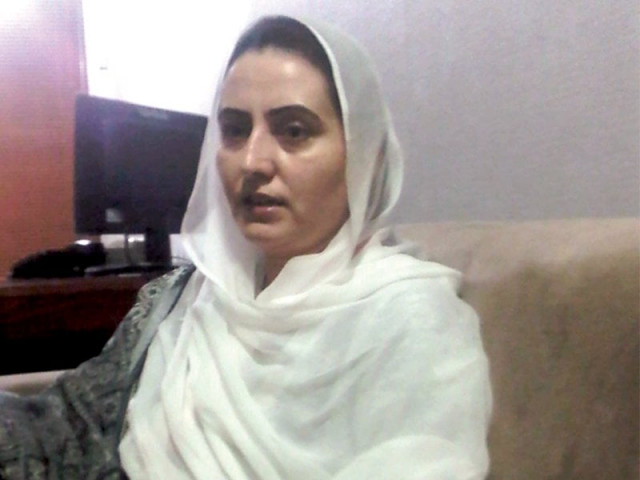Trailblazer: In G-B, a legislator who champions women’s rights
G-B Assembly passes 2 bills, dealing with protection of women and another on safeguarding child rights.

Sadia Danish hopes to promote gender equality in the region.
Bills on women’s empowerment and the state of child rights in Gilgit-Baltistan (G-B) were passed by G-B’s lawmakers, owing to the efforts of a female legislator from Gilgit.
The G-B Assembly, in its 28th session that ended on May 27, passed two bills, one dealing with protection against sexual harassment of women at the workplace and another on safeguarding child rights. Both bills were introduced by Sadia Danish, adviser to the G-B chief minister for sports, culture, tourism and youth affairs.
“As a woman I felt I should pave the way for future women legislators to contribute meaningfully towards the development of G-B’s women and improving their basic health and education,” Danish told The Express Tribune at the G-B House in Islamabad.
She said the anti-sexual harassment bill, passed on May 21, was adapted from the National Assembly’s Protection against Harassment of Women at Workplace Act 2010 in light of G-B’s cultural norms.

Both bills were passed almost unanimously with only one of the 33-member assembly objecting to the anti-sexual harassment bill. Wazir Shakil, the G-B law minister, also lent crucial support to drafting the bills, Danish said. The bills will be enforced once the G-B governor signs the two pieces of legislation. The anti-sexual harassment law not only offers a legal definition of harassment, it also necessitates the creation of a provincial ombudsman’s office to receive complaints about incidents of workplace harassment, Danish said.
She said the implementation mechanism also requires every public and private sector organisation to constitute a committee to oversee women’s complaints regarding sexual harassment at work. The committee must have at least one female member, she added.
Downplaying gender discrimination in G-B, Danish said there were some conservative families who were apprehensive about allowing women to work outside the home, however the anti-sexual harassment law would help to dispel such concerns, she hoped.
Social polarisation and implementation
There are some districts in G-B that have registered a 100 per cent female literacy rate but there are also regions where women are barred from stepping out of their homes even for medical care.
Danish said elected representatives will be taken on board to spread awareness about the law along with seminars and workshops. Other women’s development initiatives such as a project to establish 25 home-based schools in Diamer district will also help local communities learn the significance of women’s participation and gender equality, she said.
Danish said the law will not just protect women working in offices but also those working from home, especially female farmers who actively contribute to G-B’s potato cash crop.
“Women who work in offices and those who work in the fields are equal and hence deserve equal levels of protection from harassment,” she said.
She also said that an inheritance law for women and a domestic violence prevention and protection bill are also being drafted.
About the child rights bill, Danish said it is targeted orphans and street children who lack a support network. Even though the prevalence of child marriages might be low in G-B, the bill also provides protection against child marriages by imposing a five-year imprisonment sentence for people found guilty of forcing children into marriage, she said.
Published in The Express Tribune, June 14th, 2013.


















COMMENTS
Comments are moderated and generally will be posted if they are on-topic and not abusive.
For more information, please see our Comments FAQ